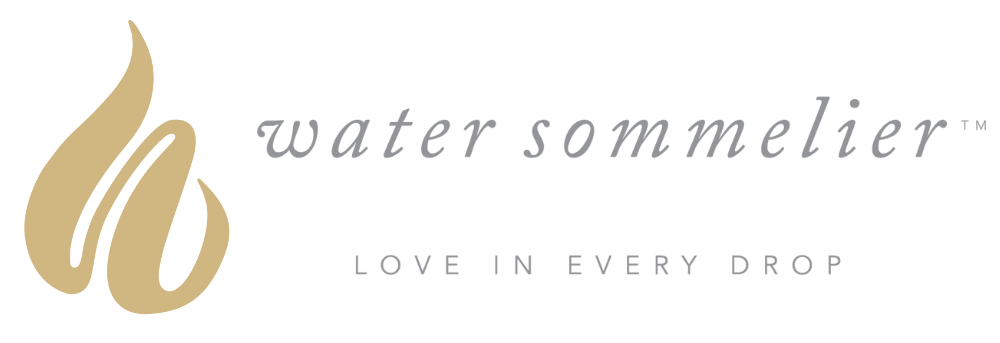
water sommelier …who?
“A man of wisdom delights in water.”
Water has always been Christina Li's preferred beverage since childhood. However, like many, she didn't pay much attention to water quality or understand its true significance. She assumed that all water was the same. That perception changed when she encountered a health challenge. Switching to water that optimized cellular hydration and rejuvenation played a significant role in overcoming her health issue. This marked the beginning of her journey with water.
Born in Hong Kong, Christina became a Certified Water Sommelier after completing her training at the Doemens Academy in Munich, home to the world's first recognized water sommelier certification program. There, she experienced a wide range of water varieties, broadening her understanding of the water world.
Tasting over hundreds of different types of water, Christina learned to distinguish the taste of various minerals, such as calcium and sodium, and to differentiate between low and high Total Dissolved Solids (TDS). She discovered how different mineral compositions in water can impact health, taste preferences, and even culinary experiences.
Indeed, as a North American, distinct from our European counterparts, our access to natural mineral water is limited. Leveraging her prior expertise in water filtration, ionized water, hydrogen water and other niche water categories, Christina provides a rounded approach, offering more accurate information and insights into optimized hydration water quality enhancement methods.
Christina's developed passion for water, coupled with her expertise as a Certified Water Sommelier, fuels her commitment to educating others about the importance of water quality and its profound impact on health and well-being.
'Water sommelier' says not all H2O is the same
You’ve heard of a wine sommelier, but how about a water sommelier? Apparently that’s now a thing.
Christina Li of Toronto claims to be the first water sommelier in Canada. Her job is to recommend to restaurants the best brands of water to pair with specific foods.
You may think water is all the same but Li says the taste and health value varies based on the compounds within. The water she prefers contains magnesium, calcium, hydrogen carbonate and sodium.
Some of Li’s favourite water costs up to $15 a bottle. For those unwilling or unable to spend that, Li says Toronto tap water is among the world’s best. She does, however, recommend filtering out the chlorine added as a disinfectant. Health Canada says chlorine in drinking water is perfectly safe.
When it comes to food, Li says that light dishes pair best with flat water while more savoury foods go best with sparkling.
With a report from CTV Toronto’s Dana Levenson; Published Monday, October 8, 2018 4:02PM EDT
A Conversation with a Water Sommelier
-
There's a lot about water that people don't know! Not many people know about the nutritional value of water. It's the healthiest thing that can quickly absorb by your body. Many people will go to a restaurant and just order water tap, still or sparkling — that's it. Lots of education will need to take place. Aside from health, different water will surly vary the dining experience. My focus is to educate people on effective, quality and sustainable water solutions. As well, to level up people’s appreciation and enjoyment of water.
-
No, indeed! What you should do is raise the glass and see the color and how clear the water is. Smell it. Taste it with a clean palate. You’d be surprised — you can really see, smell and taste a lot of difference.
-
These waters are clean and safe to drink. But not my preferred choice, when there are options available.
Water is a natural substance! To me, water purified through distillation or reverse osmosis is somewhat like a “GMO” or packaged water, which lose its authenticity. Water that has no natural minerals will cause mineral depletion and possible health risk, according to World Health Organization (WHO).
-
Common sense applies here. Water intake shall be according to one’s body weight, one’s activities and the environment. A lady at 100 lb will require less water to function than a 200 lb bodybuilder. General rule: half of one’s body weight in pounds shall be the minimum amount of daily water intake in oz.
-
I can share 2 tips that work for most of my audiences:
(1) Use some sort of hydration trackers to track your daily water. Say if your daily water intake goal is 60 oz, then use a vessel to bottle 60 oz of water and drink from the vessel to keep track of your intake.
(2) If you do drink coffee or tea, you should try to make it with natural mineral water or hydrogen rich water. Coffee made with minerals will have more complex taste and aroma, and you will love it. Reminder: Stay hydrated.


